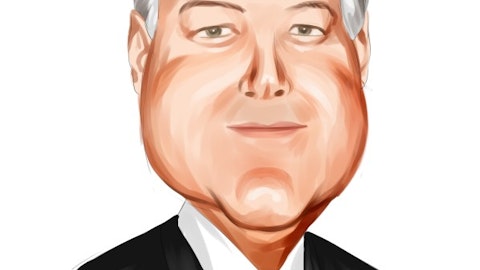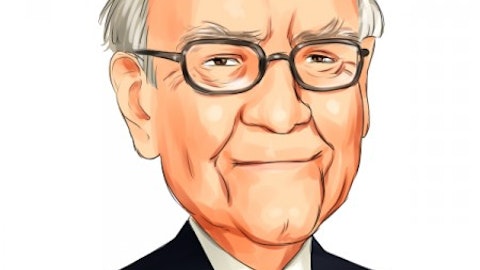Statistics reveal that last week’s volume of insider selling more than doubled compared to the volume registered in the prior week, whereas the volume of insider buying declined quite meaningfully week-over-week. As a result, the ratio of insider selling over insider buying increased dramatically week-over-week. What can one make of this change in insider sentiment? Taking into account that all major stock indexes ended January at least 5% in the red, the recent surge in the insider selling-to-insider buying ratio might suggest that corporate insiders are no longer acting as contrarian investors and are beginning to join the camp of investors running away from equities. It is still too early to say that the broader market selloff will continue its course in the upcoming weeks, but one should not ignore this possible course of events. Meanwhile, there were several companies that witnessed noteworthy insider sales last week, and this article will primarily focus on three companies that registered the largest insider sales during the previous week.
Prior to discussing the insider trading activity, let’s make you familiar with what Insider Monkey does. At Insider Monkey, we track hedge funds’ moves in order to identify actionable patterns and profit from them. But why do we track hedge fund activity? From one point of view we can argue that hedge funds are consistently underperforming when it comes to net returns over the last three years, when compared to the S&P 500. But that doesn’t mean that we should completely neglect their activity. There are various reasons behind the low hedge fund returns. Our research indicated that hedge funds’ long positions actually beat the market. In our back-tests covering the 1999-2012 period, hedge funds’ top small-cap stocks beat the S&P 500 index by double digits annually (read the details here).
Costco Wholesale Corporation (NASDAQ:COST) saw one of its insiders sell big this past week. Director James D. Sinegal, co-founder of Costco, offloaded 44,125 shares last Monday at prices that ranged from $151.66 to $152.24 per share, cutting his direct ownership stake to 804,419 shares. The Director also holds an additional 804,018 shares, which are held indirectly through LLC. The shares of the operator of membership warehouses are up by 3% over the past 12-month period despite having lost 6% thus far in 2016. The company’s net sales for the first quarter of fiscal year 2016 that ended November 22 totaled $26.63 billion, which marked an increase of 1% year-over-year. The increase was achieved as a result of new warehouse openings, which was in turn offset by a drop in comparable-warehouse sales. Costco Wholesale Corporation (NASDAQ:COST)’s gross margin for the first quarter of the fiscal 2016 year increased to 11.29% from 11.03% year-over-year.
However, the discussion of the company’s financial performance does not necessarily indicate whether the Director’s decision to sell shares is well-thought-out and well-timed, or simply conceals another purpose, so let’s consider other indicators. It is important to note that Costco’s stock trades at a rather expensive forward price-to-earnings multiple of 24.30, which is higher than the forward P/E multiples of the company’s major competitors within the wholesale food retailers industry. For instance, Wal-Mart Stores Inc. (NYSE:WMT) has a forward P/E of 15.91, The Kroger Co (NYSE:KR) has a P/E of 17.33, and SYSCO Corporation (NYSE:SYY) trades at a ratio of 18.81. A total of 38 hedge funds from our system were invested in Costco at the end of the third quarter, accumulating a mere 2.80% of the company’s outstanding common stock. Warren Buffett of Berkshire Hathaway owns 4.33 million shares of Costco Wholesale Corporation (NASDAQ:COST) as of September 30.
Follow Costco Wholesale Corp W (NASDAQ:COST)
Follow Costco Wholesale Corp W (NASDAQ:COST)
Receive real-time insider trading and news alerts
The following two pages of this insider trading article reveal the insider sales registered at Terex Corporation (NYSE:TEX) and Maxim Integrated Products Inc. (NASDAQ:MXIM).





